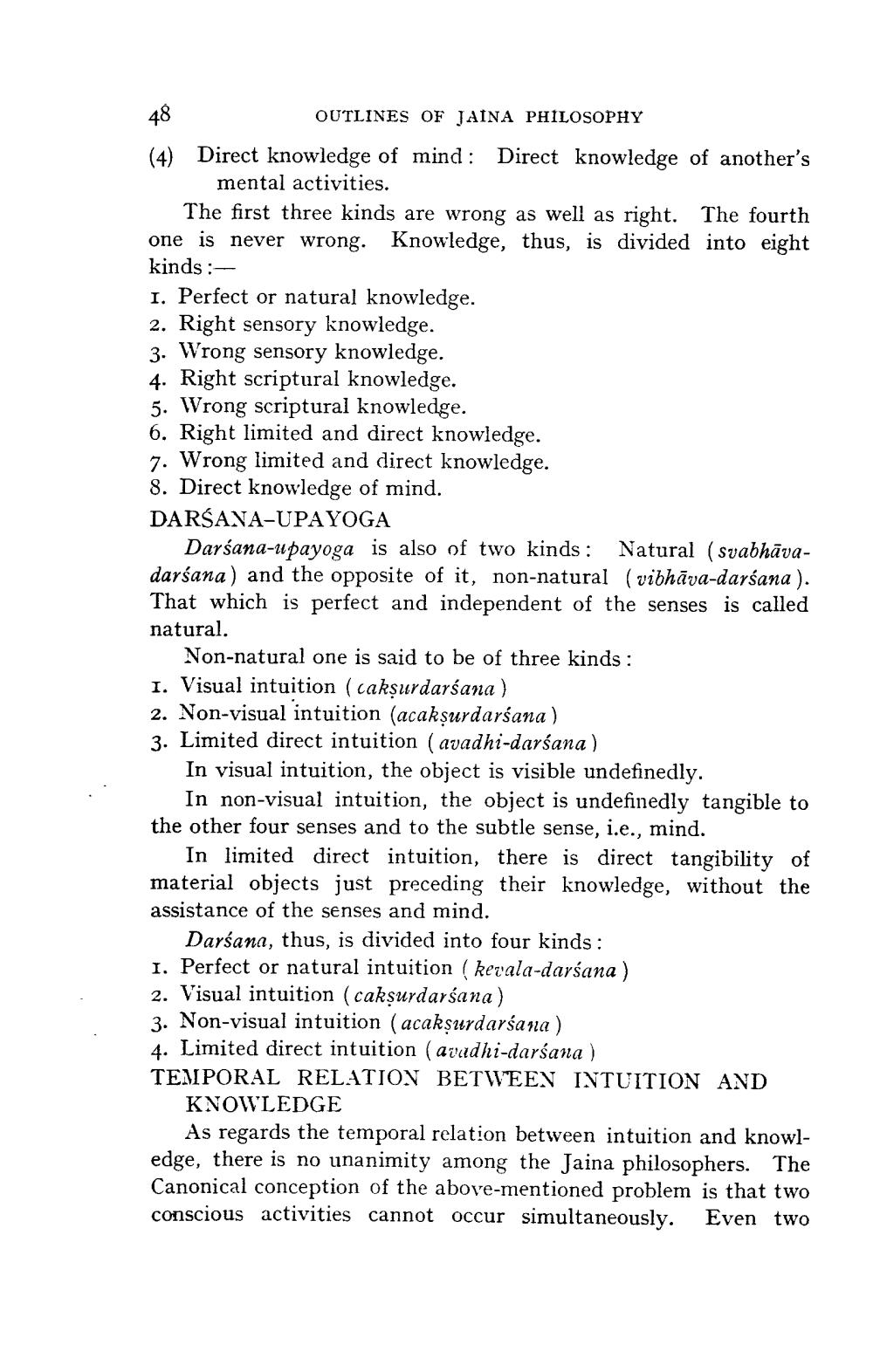________________
48
OUTLINES OF JAINA PHILOSOPHY (4) Direct knowledge of mind: Direct knowledge of another's
mental activities. The first three kinds are wrong as well as right. The fourth one is never wrong. Knowledge, thus, is divided into eight kinds :1. Perfect or natural knowledge. 2. Right sensory knowledge. 3. Wrong sensory knowledge. 4. Right scriptural knowledge. 5. Wrong scriptural knowledge. 6. Right limited and direct knowledge. 7. Wrong limited and direct knowledge. 8. Direct knowledge of mind. DARGANA-UPAYOGA
Darsana-upayoga is also of two kinds : Natural (svabhāvadarśana) and the opposite of it, non-natural (vibhāva-darśana). That which is perfect and independent of the senses is called natural.
Non-natural one is said to be of three kinds : 1. Visual intuition (caksurdarśana ) 2. Non-visual intuition (acaksurdarśana ) 3. Limited direct intuition ( avadhi-darśana )
In visual intuition, the object is visible undefinedly.
In non-visual intuition, the object is undefinedly tangible to the other four senses and to the subtle sense, i.e., mind.
In limited direct intuition, there is direct tangibility of material objects just preceding their knowledge, without the assistance of the senses and mind.
Darśana, thus, is divided into four kinds : 1. Perfect or natural intuition (kerala-darśana ) 2. Visual intuition (caksurdarśana) 3. Non-visual intuition (acaksurdarśana ) 4. Limited direct intuition (avadhi-darśana ) TEMPORAL RELATION BETWEEN INTUITION AND
KNOWLEDGE
As regards the temporal relation between intuition and knowledge, there is no unanimity among the Jaina philosophers. The Canonical conception of the above-mentioned problem is that two conscious activities cannot occur simultaneously. Even two




